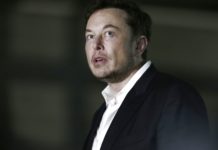Mr. Haddad sees no concern that Washington will renege on its commitment to NATO’s collective defense. “But there is a message to Europe that there is no U.S. appetite to intervene in conflicts in the neighborhood that could impact Europe,” he said.
Anna Wieslander, a Swedish defense analyst and director for Northern Europe at the Atlantic Council, sees the Afghan pullout as a clear sign that NATO will shift again to focus on great-power competition with China and Russia, emphasizing issues of deterrence, resilience, disinformation and climate change.
European allies were tired of Afghanistan, too, she said, where the war against terrorism became mixed up with democracy promotion, nation building and social reform. “But NATO is not a development aid organization,” she said.
The withdrawal fiasco will revive the strategic autonomy argument, but the best result, she said, would be “a European pillar in NATO” that could — with major investment — provide some of the strategic airlift, surveillance, reconnaissance and command and control that only the Americans now provide. “If we want more capacity and burden-sharing,” Ms. Wieslander said, “that could be a useful, if expensive debate.”
Julian Lindley-French, a defense analyst at the Institute of Statecraft in London, says that the Europeans are doing a lot of “virtue signaling,” despite “the weakness of the European effort in Afghanistan over the past 20 years,” where most allies limited their operations with cautious rules of engagement.
“European weakness,” he added, “is in fact European isolationism.”
European complaints about the chaotic withdrawal are serious but could boomerang, warned Kori Schake, director of foreign and defense policy studies at the American Enterprise Institute.
“I’m sympathetic to European anxiety, given their reliance on the United States for the ultimate guarantee of their security, but also because it raises important questions about Biden’s judgment,” Ms. Schake said.
Source : Nytimes













